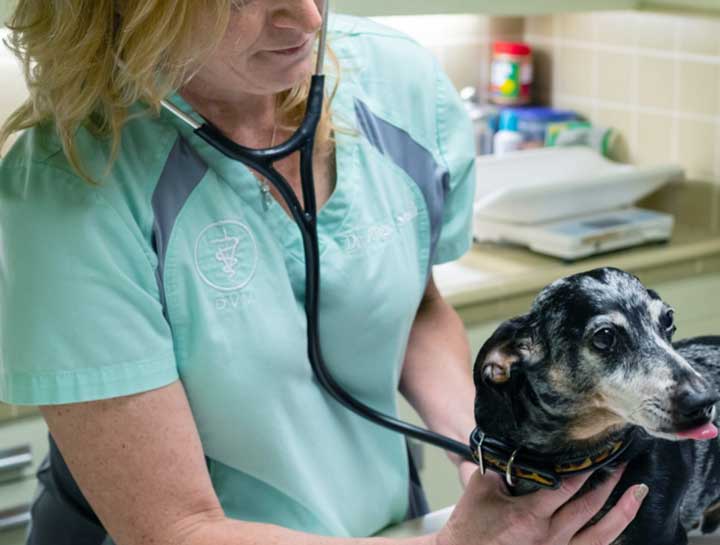Dog & Cat Care
Keep your cat or dog healthy.
Petaluma Veterinary Hospital offers preventive care and services for kittens, puppies, cats, and dogs. Bringing your pet to one of our veterinarians for a physical exam is the smartest and easiest way to keep them healthy.
Exams allow our veterinarians to detect problems and diseases that might go undiscovered otherwise, including heart murmurs, tumors, enlarged organs, cataracts, ear infections, ear mites, dental disease, skin issues, and allergies.
Learn more about our Cat & Dog Care Services:

Preventive Care for Dogs
Commit to a lifetime of health.
Preventive Care for Cats
Help your cat live a longer, happier life.
Puppy & Kitten Care
Give your new pet the best start in life.
Senior Pet Care
How your pet's needs change.




